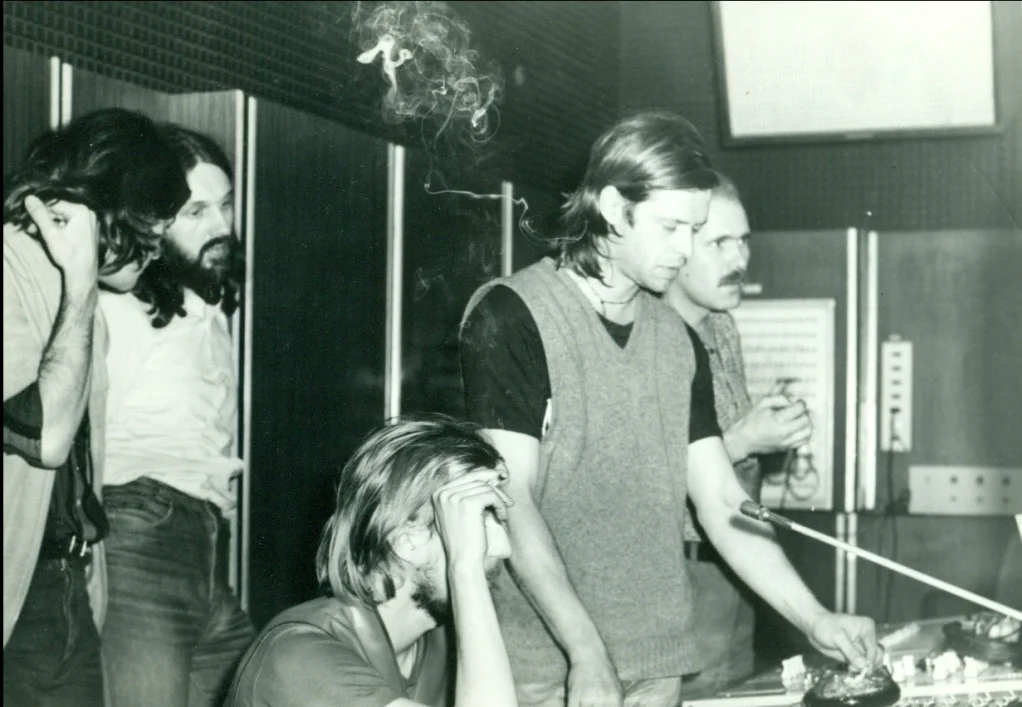
AQUARIUM records the album «Equinox» in 1987/Wikimedia Commons
Qalam strives to explore the interpenetration of different cultures. To this end, we have decided to launch a series of playlists in which music mediates between different geographical and ideological spaces. Our first playlist is called ‘West to East: One Hundred Best Songs’. It will be updated several times a week, and its curation will focus on how Western pop culture has reflected the realities of the East, whether they are musical, geographical, religious, or political. (The terms ‘West’ and ‘East’ should be taken as broadly and arbitrarily as possible.)
Boris Grebenshchikov often explores various Eastern philosophies in his work, but his most profound piece in this vein is almost wordless and isn’t even his own composition. ‘Tibetan Tango’, a Dadaist incantation by the late Sergey Kurekhin, is from the album Radio Africa (1983), one of the best Soviet rock albums (and indeed of the world; let's not be modest here). The politically sensitive issue of Tibet adds another layer of complexity to the piece, and it’s unlikely that the key players—foreign agent Boris Grebenshchikov, National Bolshevik Party member Sergey Kurekhin, and United Russia member Igor Butman (saxophone solo)—could have foreseen how their own social and political paths would unfold in a bizarre manner when they recorded this piece. Grebenshchikov first visited Tibet exactly ten years after recording ‘Tibetan Tango’ and returned with a unique response called ‘Russian Nirvana’.